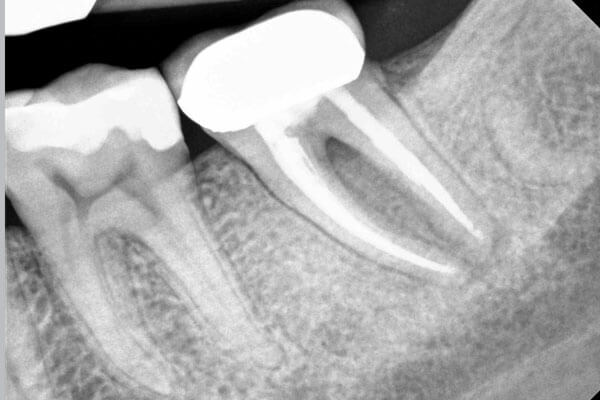Root Canal Treatment. Relief from pain.
A root canal treatment can save a tooth that’s badly decayed, infected, or inflamed. It’s a common procedure that relieves pain and helps avoid the need for extraction.

What is involved in a root canal?
- The goal of a root canal is to remove infection and bacteria from the tooth’s pulp. This is done over the course of two appointments.
- At the first appointment, your dentist will clean, shape and disinfect the root canals inside the tooth.
- A temporary filling is then placed on the tooth to seal it between appointments.
- Once that is complete and the infection is cleared,at your next appointment, a permanent filling or crown is used to protect the tooth.
- Most treatments are completed over two appointments.
Signs you may need a root canal:
- You are experiencing persistent toothache or throbbing pain in a tooth.
- You have increased or lingering sensitivity to hot or cold food and drink.
- You have swollen, tender or bleeding gums.
- You notice a darkened area or cracks on your tooth, or it has been damaged.
- You have a history of decay, trauma or broken fillings.
What you need to know:
- We use a local anaesthetic to keep you comfortable.
- If you are anxious or nervous about getting a root canal, we offer a range of anxiety options for nervous patients. We have drift-away anxiety management and sleep dentistry options to make your next visit to the dentist as comfortable and pain-free as possible.
- A crown is often recommended to protect the treated tooth long-term.
- You can find out more about crowns and their benefits here.
- Our team of dental experts will guide you through the process, explaining the details at every step, from diagnosis to aftercare, to ensure your root canal process is as comfortable as possible.
Let’s take care of your smile.
Call our team on (09) 837 2598, book online or request an appointment and we will help relieve you from the pain caused by broken, cracked or damaged teeth.
